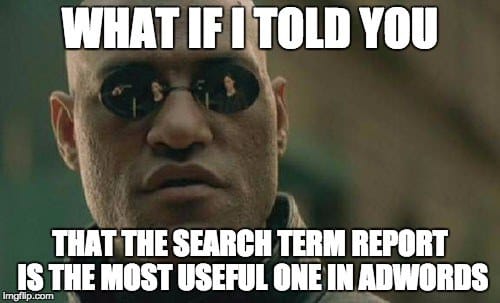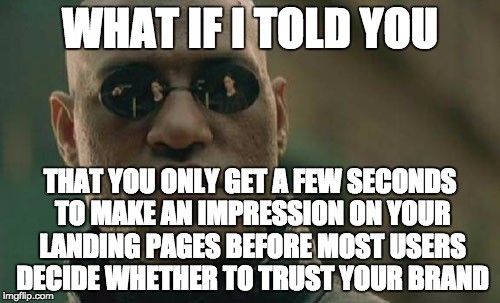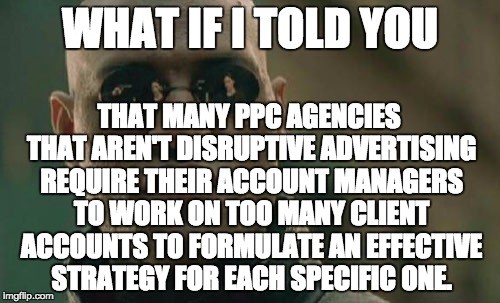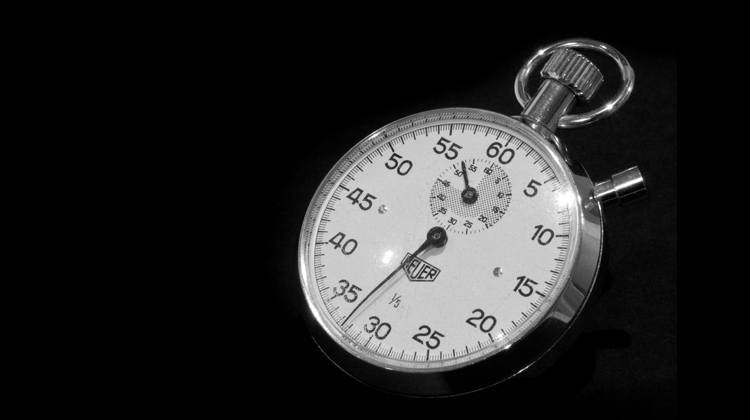The 15 Minute AdWords Audit
by Casey Walrath • September 23, 2015
I should say up-front, this post title is slightly misleading, because doing a thorough audit on your Google AdWords account takes time—at least an hour or two. Still, you’d be surprised how much you can learn about an AdWords account in just a few minutes.
For example, I’ve worked with enough PPC accounts that I could probably tell you within just a minute or two whether or not the account manager who’s been working on an AdWords account is experienced. How? By looking at the following 4 parts of your AdWords campaigns.
1. Review Your Highest Cost Keywords
Time: 5 minutes
You can learn a lot about an AdWords account just by looking at the highest spending keywords. Generally, the majority of any company’s PPC traffic will come from no more than a few dozen keywords—sometimes only five or six—and sorting by ad spend shows where the damage is being done.
The first thing I check is your cost per conversion. You have conversion tracking setup, right?
Well then, are your top keywords converting at a profitable rate? Do you know what a profitable conversion rate is for your business? If not, you’d better read this post for more information about that.
![]()
If your top-spending keywords are losing money, is it by a little or by a lot? If it’s by a little, a solid conversion rate optimization and bid adjustment strategy should help. If a keyword is very unprofitable (or worse, not converting at all), it’s often worthwhile to just pause it in the short term while you evaluate your longer-term strategy.
If your AdWords account is struggling, sometimes the first step is to stop the bleeding.
There’s more we could look at in this view; but, since we’ve only got a few minutes in our AdWords audit, let’s move on to the next step…
2. Run a Search Terms Report
Time: 5 minutes
The search terms report is one of the most powerful reports AdWords offers, because it lets you see exactly what users are typing to trigger your ads. A PPC manager who isn’t regularly checking the search terms report simply isn’t doing his or her job.
When I perform an AdWords audit I like to run a search term report for the last 90 days to get a real sense of what has been searched recently.
First, I’ll sort the search queries by cost and quickly scan through the first hundred or so. Which of them are performing well? If a lot of your top search queries are being pulled in by Phrase or Broad Match keywords, would it make sense to create separate Ad Groups specifically for the Exact Match queries so you can have an ad specifically tailored to that search query?

Next, check which of the top search queries have an unacceptably high cost per conversion or no conversions at all. Those should probably be added as negative keywords immediately.
Finally, are any of the top search queries completely irrelevant or not suited to your business? If so, you might have a problem with overly broad targeting or not enough negative keywords. Be sure to look for short tail negative keywords that would apply to your entire campaign. For example, you might want to make sure keywords like “free” or “careers” are excluded from the entire campaign.
3. Check Your Highest Traffic Landing Page
Time: 3 minutes
Now that we’ve looked at keywords, it’s time to check landing pages. This step is quicker than the last two and for good reason. After your users hit your web site, most of them will decide in just a few seconds whether they like your company enough to continue engaging. If you pass that test, your odds of converting go way, way up.
Open up your top two or three landing pages. Give yourself five seconds to look at each page. Now, ask yourself two questions:
1. Is it immediately clear what I’m offering and how it will benefit the user?
2. Is it obvious what the user’s next step should be?
Some products require a little reading to fully understand and that’s okay, but it should be clear at a glance why your product or service matters. Respect the user’s time and their (im)patience by telling them how you’ll help them with a direct, benefit-focused headline and a solid hero shot.

Then, make sure it’s obvious what the user is supposed to do next. Is there a button that should be clicked? A phone number that should be called? A form to fill out? What should the user expect when they click/call/fill out? If they don’t know after just a few seconds, chances are they’re going to bounce.
In fact, if you want to be really thorough about this step, do it with someone who doesn’t know your business at all. Give your mom, a friend or someone from HR ten seconds to evaluate the page and then ask them the questions above. That will take slightly longer than two minutes, but you might be surprised at how easy it is to overlook things like basic clarity when you’re in the weeds.
4. Write Down Your Strategy
Time: 2 minutes
Time for the most important part of an AdWords audit: stepping back and thinking strategically!
Ask yourself, and then write down the answer: what is the next thing you’re going to do to get the results you want from PPC? If you’re using an agency, what is the next thing they’re going to do?
The more specific your answer is, the better off you are. If your answer is, “Well, I’ll adjust some bids and test some new ads to try for a higher click through rate”—that’s not good enough! On the other hand, if you said “I’m going to test a new ad for my best selling product that mentions our new 20% discount and adjust bids to find what my ROI is in the second ad position,” that’s more like it!
If your agency can’t answer that question, you might have a problem.

The reality is, it’s easy to spend a lot of time in an AdWords account fiddling with a lot of small things and accomplishing nothing. If you can’t quickly and concisely articulate your near-term strategy in 2 minutes, chances are you won’t be using your time effectively when it’s time to get to work.
What an AdWords Audit is For
Let’s remember that the ultimate point of an AdWords audit is to give you a quick overview of where your accounts are going and to make sure you know exactly what you’re going to be doing next.
Once you’ve completed your 15 minute AdWords audit, you should have enough notes for several hours, or even several weeks, worth of work. The most important thing is that you have a firm idea what you’re doing and where you’re going with your PPC accounts. Otherwise, you’re just spinning your wheels and tinkering at the margins.
Also, if you’re looking for help with your AdWords account and would like one of our strategists to take a look, let us know and we’ll take a look for you—even if it takes more than 15 minutes!
Now it’s your turn: If you only had 15 minutes to audit your Adwords account, what would you look at?





